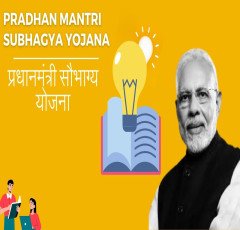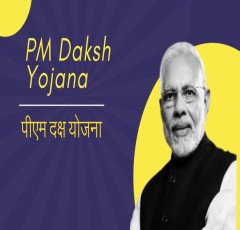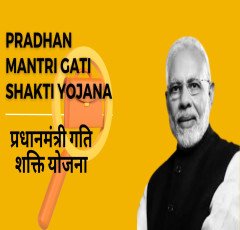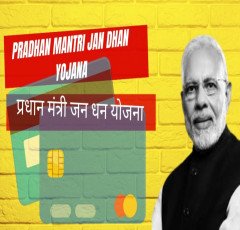
What does Uniform Civil Code mean? What does the Constitution say about it and why is it a contentious issue in India?

A proposed legal framework known as the Uniform Civil Code (UCC) intends to replace individual laws based on religion customs and traditions with a set of civil rules that are applicable to all Indian citizens, regardless of their religious beliefs. It aims to establish consistency on issues including adoption, inheritance, divorce, and marriage.
The UCC is not specifically referred to in the Constitution as a separate clause.
The State shall seek to establish for its citizens a uniform civil code throughout the territory of India, according to Article 44 of the Directive Principles of State Policy, which are non-justiciable principles that direct the government. This clause's presence reveals the framers' eventual aim to transition to a UCC.
The UCC is the subject of criticism in India for a number of reasons:
Gender Justice:
The UCC's backers claim that by outlawing discriminatory practices that are common in personal laws, it will advance gender equality and justice. Some religious personal laws, for instance, have come under fire for not granting women equal rights in relation to marriage, divorce, and inheritance. A UCC, in the opinion of supporters, would guarantee equal rights and opportunities for all citizens, regardless of gender.
The UCC is frequently viewed as a way to safeguard the secularism and equal treatment under the law principles. Different personal laws based on religious connections, according to critics, violate the idea of a secular state and reinforce inequality. They think a UCC would support the nation's secular structure and provide equal rights for all citizens, regardless of their religious backgrounds.
Challenges of Implementation:
Given the diversity of Indian society, it is difficult to implement a UCC. Concerns exist over how to maintain equality and justice while still recognizing religious and cultural diversity. It is difficult and requires great consideration to codify a consistent body of laws that are acceptable to all communities.
Conservative Opposition to Social Change:
According to some, conservative members of society who are averse to embracing progressive change are the root of opposition to the UCC. The opposition to a single civil code may be influenced by traditional values, patriarchal traditions, and entrenched power structures, especially when it comes to issues like divorce, alimony, and property rights.
Need for Gradual Reforms:
Some advocate altering personal laws more gradually than by the implementation of a full UCC. They contend that a smoother transition towards a UCC over time might be achieved through modest reforms within particular personal law sectors that are more practical and agreeable to many parties.
To mention that the UCC is still a subject of continuing debate and discussion in India, with varying viewpoints. Due to the complexity of the situation, it is important to carefully weigh legal, social, and cultural considerations in order to strike a balance between community peace, religious freedom, and individual rights.
Historical Background:
India's debate for the Uniform Civil Code has a lengthy historical background. The controversy stretches back to the colonial period, when the British instituted distinct personal laws based on religious groupings. To promote social cohesiveness and national integration, the Indian Constitution's drafters foresaw a move toward a unified code. The Constitution, however, left the implementation of the UCC up to the states because of the delicate nature of the subject and the necessity to preserve social harmony.
Judicial pronouncements:
The Indian courts has significantly influenced the conversation surrounding the UCC. A consistent civil code is desirable, as the Supreme Court of India has noted numerous times over the years. While some rulings have placed a strong emphasis on the necessity of a UCC to advance gender fairness and constitutional ideals, others have acknowledged the complexity of the situation and the need for public agreement before to its implementation.
International Perspective:
Several nations around the world have the idea of a single civil code. Various nations, including France, Turkey, and Tunisia, have enacted such laws. Advocates contend that a UCC will improve India's international standing and bring it into compliance with international standards. Opponents counter that because every country has a different context, implementing a UCC in India should take into account the nation's particular social, cultural, and religious diversity.
Public Opinion:
There are differing views about the UCC. For the purpose of equality and secularism, certain segments of society support the creation of a single civil code, while others contend that personal laws are an essential component of religious identity and should be preserved. It is difficult to achieve a wide level of agreement on the provisions of a UCC since various groups have varying viewpoints and concerns.
Political drive:
There hasn't always been a strong political drive to establish a thorough UCC. Due to the delicate nature of the situation and the potential political fallout, successive governments have been reluctant to make a decision. The delay in enacting a solution might be attributed to political parties' inability to come to an agreement and pressure from various religious and social organizations.
To hold open and welcoming dialogues to address the issues and goals of all parties, keeping in mind the values of justice, equality, and religious freedom. The implementation of a uniform civil code in India necessitates striking a difficult balance between safeguarding everyone's fundamental rights and preserving cultural variety.
Public Education and Awareness:
The general public's lack of knowledge and understanding of the idea of a UCC may be a factor in the controversy. People could be cleared of misconceptions and have informed debates if efforts are made to educate them about the goals, advantages, and potential repercussions of a UCC.
Role of Women's Rights:
The discussion of UCC is intimately related to the issues of gender equality and women's rights. A universal civil code, according to supporters, would give women more authority by doing away with the discriminatory elements of personal laws. In order to address issues of gender justice, it is essential to ensure the active participation and representation of women's organizations and activists in talks on the UCC.
Regional Differences and Autonomy:
India is a federal nation with a wide variety of regional identities and traditions. A universal code being imposed on such a diverse country, according to UCC critics, might damage cultural identities and regional autonomy. A difficulty that needs to be solved is how to strike a balance between the demand for a universal civil code and consideration for regional differences.
Constitutional adjustments:
To establish a balance between the fundamental rights of persons and the religious freedoms protected by the Constitution, implementing a UCC may call for constitutional adjustments. The rights and liberties of citizens should always come first when considering any proposed modifications to personal legislation.
Dialogue and consensus building are crucial in the UCC debate and should involve all relevant parties, including religious leaders, legal professionals, women's rights advocates, and members of underrepresented groups. In order to guarantee that the UCC embodies the ideals of justice, equality, and religious freedom while respecting India's diverse population, it is crucial to forge agreement through open conversations and resolving concerns.
It's important to remember that the UCC's future in India will depend on how society perceives change, political will, and the capacity to reach consensus on a difficult and delicate matter. The various viewpoints and interests involved will need to be carefully taken into account for any future UCC advances or reforms.
Examining the UCC's purview:
The UCC's purview is up for discussion. While some advocate for a comprehensive code that addresses every aspect of personal laws, others advocate for a code with a more constrained scope that focuses on particular issues like marriage, divorce, and inheritance. It might be difficult to strike a balance between broad transformation and addressing particular problems.
Implementation challenges:
Building administrative competence is as important to a UCC's implementation as legal reforms are. It is a big task to teach judges, attorneys, and other stakeholders how to comprehend and administer the uniform laws consistently throughout various areas. To achieve successful implementation, enough infrastructure and resources must be in place.
Focusing on harmonizing personal laws while preserving religious and cultural diversity is another strategy for tackling the issues with personal laws. This strategy aims to pinpoint universal principles that underlie various personal rules and encourage convergence on those universal principles without completely eliminating religious-specific customs.
The role of alternative dispute resolution procedures like mediation and arbitration might be investigated as a way to settle disputes resulting from personal laws. These procedures can be flexible and enable parties to reach compromises while respecting one another's religious and cultural beliefs.
Comparative Study and Best Practices:
When creating a UCC, conducting a comparative analysis of the personal laws and best practices of other nations can be incredibly insightful and helpful. The Indian setting can benefit from looking at how other countries with various religious and cultural origins have dealt with the issue.
Public engagement and the Legislative Process:
Because of the UCC's complexity and sensitivity, it is crucial to engage in wide public engagement and solicit feedback from individuals, professionals, and religious leaders. Any new UCC can help foster trust and guarantee legitimacy if it is subjected to an exhaustive legislative procedure that involves open discussions, public hearings, and consultations.
To be aware that achieving a UCC in India requires balancing a number of factors, including constitutional rights, cultural diversity, gender equality, and community peace. For this contentious and complex issue to move forward meaningfully, a balance between these aspects will be essential.
Protection of Minority Rights:
When implementing a UCC, it is important to keep religious and cultural minorities' rights and interests in mind. The UCC must recognize and accommodate the distinctive practices, traditions, and customs of many communities while simultaneously advocating for justice and equality.
Socio-economic Implications:
The socio-economic effects of implementing a unified code should be taken into account in the UCC discussion. Changes in personal laws may have diverse effects depending on the socioeconomic makeup of the community. There should be adequate safeguards and provisions in place to counteract any potential disadvantages or disparities that some groups may experience.
Public Perception and Confidence:
It's critical to assuage public concerns about the UCC while fostering public trust. Public dialogues, awareness campaigns, and education are examples of transparent and inclusive methods that can aid in fostering understanding, dispelling myths, and fostering a sense of ownership among individuals.
Law Reform Commissions can be quite helpful in researching and coming up with proposals for the UCC. To assist the legislative process and guarantee that any proposed reforms are well-founded and take into account the interests of various populations, these commissions can perform in-depth research, meet with stakeholders, and offer expert recommendations.
Emphasizing Constitutional Principles:
The fundamental values embodied in the Indian Constitution, such as justice, equality, and individual rights, shall serve as the UCC's compass. Any suggested rules should follow these guidelines and work to create a society that is fair and inclusive.
Personal laws have changed over time as a result of judicial interpretations and legislative amendments. The UCC debate should acknowledge the requirement for constant evaluation and revision of personal laws in order to bring them into compliance with constitutional principles and current societal values.
International Human Rights Standards:
In drafting a UCC that supports individual rights, non-discrimination, and gender equality, consideration of international human rights standards and treaties might be helpful. India's international responsibilities can be aided by aligning with universal human rights values, which can also advance a progressive legal system.
Should approach the UCC discussion with tact, inclusivity, and a dedication to respecting constitutional principles. In order to reach a consensus on this complicated and divisive issue, it is crucial to strike a balance between the many interests, cultural pluralism, and the pursuit of social justice.
Legal Clarity and Consistency:
The UCC aspires to promote legal clarity and consistency in subjects relating to personal laws. Multiple personal laws depending on religious affiliations can lead to confusion and inconsistent interpretations, which can be avoided by having a unified set of rules that apply to all residents.
Impact on Interfaith Marriages:
When people from various religious backgrounds decide to get married, the UCC may have an impact on those unions. In terms of the legal rights and obligations of couples in such marriages, a consistent code can offer clarity and consistency.
Legal Process Simplification:
The UCC can streamline and simplify legal procedures pertaining to marriage, divorce, inheritance, and other private affairs. This may lessen red tape, simplify the law, and simplify how people interact with the legal system.
Empowerment of Disadvantaged Groups:
By establishing equal rights and protections, the UCC has the ability to empower disenfranchised groups, notably women. In order to advance gender justice and social fairness, it can address gender imbalances, patriarchal practices, and discriminatory clauses found in some personal laws.
Changing Social Norms:
Since the creation of current personal laws, Indian society has undergone substantial social and cultural changes. The UCC should fulfill the needs and ambitions of modern society while taking into account these changing social norms and recognizing religious and cultural diversity.
Constitutional examination:
To make sure it is compatible with the fundamental ideals and rights protected by the Indian Constitution, any new UCC should go through a comprehensive constitutional examination. To find a proper balance, the study needs to consider issues with religious liberty, secularism, and individual liberties.
International responsibilities and Obligations:
When drafting a UCC, India's international responsibilities and obligations, notably in the area of human rights, should be taken into account. India's standing as an accountable member of the international community can be strengthened by adhering to international standards, which can also advance progressive legal systems.
Civil society organizations, advocacy groups, and activists are important in influencing the conversation surrounding the UCC. They can help make the process more inclusive and representative by taking part in conversations, spreading awareness, and addressing the issues that are important to marginalized communities.
Incremental improvements:
Because the UCC is so sensitive and complicated, it may be possible to progressively move toward a comprehensive UCC by implementing incremental improvements in specific areas of personal law. This enables a progressive rollout and answers concerns with measures that are grounded in reality.
In India, the UCC is still a complicated and divisive subject with many competing interests. Individual freedom, religious liberty, and societal cohesiveness must all be balanced, which calls for careful consideration, open communication, and a nuanced comprehension of the changing dynamics.
Managing Cultural Sensitivities:
Implementing a UCC necessitates juggling the religious convictions and cultural sensibilities of many populations. To make sure that the UCC is acceptable and inclusive, it is crucial to address the topic with delicacy, tolerance, and a thorough awareness of the cultural context.
Preserving diversity and plurality:
India is renowned for its wide range of cultures and religions. The UCC should work to uphold equality and justice while safeguarding this pluralism. Finding a balance between uniformity and variety can be achieved by acknowledging and taking into account the distinctive features of various communities.
Balance between State Intervention and Personal Autonomy: The UCC argument centers on how to strike a balance between the state's involvement in people's personal lives and their right to personal autonomy. The difficult part is figuring out how much the government should control personal laws while yet allowing people to freely practice their religion.
Regardless of whether a UCC is implemented, regular assessment of personal laws to make sure they adhere to constitutional norms is essential. While upholding religious freedoms, this procedure can aid in spotting discriminatory clauses, advancing gender equality, and addressing societal developments.
Role of Legislative Reforms:
Comprehensive research, expert consultation, and evidence-based decision-making should be the foundation of all legislative reforms. It is crucial to collaborate with lawmakers, legal professionals, and academics to create well-considered policies that strike a balance.
Consensus-building and inclusive public discourse should lead to the creation of the UCC. Achieving understanding, bridging gaps, and ensuring that the UCC reflects the hopes and concerns of all stakeholders can be accomplished by including citizens, community leaders, and religious authorities in fruitful talks.
Monitoring and Evaluation:
It is essential to set up systems for keeping an eye on and assessing the UCC's effects. Regular evaluations can assist in finding any unexpected repercussions, fixing flaws, and making the required improvements to make sure the UCC accomplishes its intended goals.
A thorough and holistic approach that respects constitutional principles, cultural diversity, and individual rights is necessary to navigate the UCC's intricacies and conflicts. Finding a path forward requires an open and inclusive conversation, informed decision-making, and a dedication to social justice.
Legal Experts' Role:
Including legal experts, academics, and jurists in the creation of a UCC might result in the sharing of their knowledge and expertise. Their expertise can be used to create a thorough, legally valid code that protects constitutional principles and honors cultural diversity.
A human rights perspective should be used to evaluate the UCC to make sure it upholds the ideals of equality, tolerance, and personal freedom. The UCC can be strengthened by incorporating international human rights principles, which also offer a framework for defending the rights of all citizens.
Implementation Challenges in a varied Society: Putting a UCC into practice in a varied nation like India presents a number of difficulties. Religious views, social mores, and customs can vary between nations and communities. It is crucial to take into account these variations and implement policies that encourage inclusion and acceptance.
Gender Justice in the Foreground:
The UCC discussion should place a strong emphasis on gender justice. Personal laws frequently have clauses that disadvantage women in matters like marriage, divorce, inheritance, and custody. The UCC should make an effort to end such discriminatory behaviors and guarantee gender equality.
Legislative Process and Constitutional adjustments:
If constitutional adjustments are required for the implementation of a UCC, they should be undertaken through an open and inclusive legislative process. For a decision-making process to be strong and well-informed, there must be enough time for discussion, consultation, and consideration of many points of view.
Individual Rights and Social Responsibilities:
The UCC should achieve a balance between these two concepts. It should safeguard individual liberties while also taking into account the needs of society as a whole and the necessity to preserve social peace.
Learning from State-Specific Reforms:
A few Indian states have changed the personal laws that apply to residents of their states. The creation and implementation of a UCC at the national level can benefit from examining the successes and difficulties of these state-specific reforms.
Adapting to Evolving Social Realities:
The UCC need to be flexible and able to change along with the evolvability of social realities. It should be adaptable enough to take into account upcoming changes and deal with new concerns regarding personal legislation, maintaining its long-term relevance and efficacy.
Role of the Media and Public Participation:
The media has a big influence on how people feel about the UCC and how they talk about it. The difficulties involved can be better understood with responsible and objective reporting. Increasing public participation through venues like town hall meetings, open forums, and social media can aid in gathering a range of viewpoints.
Addressing Myths:
Myths and false information frequently cloud the UCC discourse. Through public awareness initiatives, fact-checking, and open communication about the goals and effects of a UCC, efforts should be taken to correct these misconceptions.
International Comparisons:
Analyzing the outcomes of other nations who have enacted a UCC or have consistent legislation in particular areas might offer insightful information. Understanding the achievements, difficulties, and lessons learnt from these nations can assist to inform the Indian context and mold the UCC approach.
Protecting Religious Freedom:
The safeguarding of the right to practice one's religion as protected by the Indian Constitution should be given first priority in any UCC implementation. Maintaining a secular and multicultural society requires ensuring that people can freely practice and declare their faith without hindrance.
Building Consensus:
For a UCC to be implemented successfully, it is essential to achieve consensus among a variety of stakeholders. Talking openly, respectfully, and inclusively with local officials, representatives of the community, and ordinary residents can help address issues, develop relationships, and promote a sense of ownership over the procedure.
Judiciary's Function:
The judiciary is responsible for interpreting and carrying out all laws, including personal laws. Significant changes in personal laws have frequently resulted from judicial activism and liberal interpretations. It is impossible to ignore the judiciary's influence on the UCC discussion and commitment to justice and equality.
Protection of Minority Rights:
It is crucial to protect the legal rights of people who identify as religiously or culturally minorities. Minority communities' concerns and interests should always be taken into consideration when implementing a UCC, and special traditions and practices should always be honored and safeguarded.
Gradual shift:
The difficulties of society and the law may be lessened by a staggered and gradual shift to a UCC. Step-by-step reform implementation, focusing on particular personal law provisions, and tracking the results can yield insightful information and foster trust in the procedure.
Technology's Role:
Using technology to your advantage can make implementing a UCC easier. Legal processes can be made more effective and user-friendly by using digital platforms, online registration services, and electronic documentation to simplify procedures, cut down on paperwork, and improve accessibility.
Impact on Social cohesiveness:
By encouraging a feeling of justice, equality, and common ideals among citizens, the UCC has the ability to strengthen social cohesiveness. It can fill the gap between various cultures and help create a society that is more harmonious and inclusive.
Empowering Women:
The UCC should give equal rights and protections to women in private issues as a priority. The UCC can support women's socioeconomic empowerment by removing discriminatory provisions and advancing gender equality.
Establishing mechanisms for routine evaluation and review of the UCC's implementation will make it easier to spot issues, gauge its effects, and make the required corrections. As a result, the UCC will continue to respond to changing societal demands and goals.
A thorough and inclusive strategy that upholds constitutional values, safeguards minority rights, advances gender justice, and promotes social cohesion is necessary to navigate the UCC's intricacies and conflicts. It necessitates constant communication, participation, and a dedication to creating a society that is more inclusive and just.
Access to Justice:
The UCC should work to guarantee that all citizens, regardless of their religious or cultural background, have equal access to justice. Specifically for vulnerable populations, this entails enhancing legal aid programs, fostering alternative conflict resolution techniques, and lowering obstacles to justice.
Protecting Cultural Diversity:
While the UCC strives for consistency, it's crucial to preserve and honor India's rich cultural diversity. The code must find a balance between the requirement for uniform rules and the protection of cultural customs and traditions that don't violate basic rights or the ideals of justice and equality.
Amendments to the Constitution:
If enacting a UCC necessitates amending the Constitution, it is crucial to make sure that the procedure upholds democratic values and constitutional safeguards. There should be sufficient checks and balances in place to protect against any potential abuse or degradation of constitutional ideals.
Building Confidence:
To address the issues raised by the UCC, efforts should be taken to increase confidence among various communities. Transparency, active participation, and ensuring that the opinions and concerns of all stakeholders are seriously taken into account can accomplish this.
Personal laws could be harmonized in some areas where there is agreement and room for reform, even in the absence of a full UCC. To promote greater equality and justice, gradual reforms might be sought in areas including marriage, divorce, inheritance, and adoption.
Gender-sensitive Approach:
In the UCC discussion, adopting a gender-sensitive approach is essential. Making sure that women's rights and gender justice are at the forefront of the conversation can result in significant changes that address the widespread discriminatory behaviors.
Public Education and Awareness:
To debunk myths, false information, and preconceptions regarding the UCC, public education and awareness efforts are required. Public awareness of the goals, advantages, and potential effects of a UCC can promote educated debate and improve communication among citizens.
Legislative Consensus:
For the UCC to be successfully implemented, there must be a wide-ranging legislative consensus. Political parties and legislators should put the country's interests first and endeavor to forge consensus while putting aside their political differences in order to advance a thorough and inclusive UCC.
Empirical Research:
Empirical research can yield important information and insights on the current personal laws and future reforms. In order to address issues and create a successful and balanced UCC that satisfies the requirements of a diverse population, evidence-based policymaking might be helpful.
Responsibility and Implementation:
It's critical to set up systems for tracking responsibility and the UCC's execution. Regular review and reporting can aid in discovering any gaps or difficulties and ensuring that the UCC's stated goals are being achieved.
In India, the UCC is still a delicate and complicated subject that calls for careful deliberation, stakeholder involvement, and a dedication to safeguarding constitutional principles of justice, equality, and diversity. It's crucial to approach the discussion with openness, inclusivity, and a sincere desire to establish a legal system that upholds people's constitutional rights, cultural diversity, and societal peace.






















 RPM 3.0
RPM 3.0  Acer Laptop
Acer Laptop  Smart Doorbell
Smart Doorbell  One World Collection
One World Collection  Top Rated From Amazon
Top Rated From Amazon  Best Selling Books
Best Selling Books  Creative Brief For Video Shoot
Creative Brief For Video Shoot  Artificial Intelligence
Artificial Intelligence  SOFAS
SOFAS  SEO Checklist
SEO Checklist  Men Clothing
Men Clothing  Online Marketing
Online Marketing  Women Fashion
Women Fashion  Favorite Company (Cuelinks)
Favorite Company (Cuelinks)  ELECTRONIC ACCESSORIES
ELECTRONIC ACCESSORIES  Amazon Best Selling Products
Amazon Best Selling Products  1150+Trendy kids coloring pages Bundle
1150+Trendy kids coloring pages Bundle  NordPass
NordPass  NordLocker
NordLocker  Best Robotic Vacuum Cleaners
Best Robotic Vacuum Cleaners  ASUS Laptop
ASUS Laptop  Sennheiser
Sennheiser  Online Technology Classes
Online Technology Classes  TitTok Revolution
TitTok Revolution  NordVPN
NordVPN  The Secret Email System
The Secret Email System  The Click Engine
The Click Engine  Only For The United States
Only For The United States  Hello Theme
Hello Theme  Unlimited access to classes on illustration, photography, design, film, music
Unlimited access to classes on illustration, photography, design, film, music  ASPINAL LONDON
ASPINAL LONDON  All Wireless Products
All Wireless Products  Best Sellers On Amazon
Best Sellers On Amazon  Unreal Engine 5 For Beginners Learn The Basics Of Virtual Production
Unreal Engine 5 For Beginners Learn The Basics Of Virtual Production  Hot Bags For Pain Relief
Hot Bags For Pain Relief  Graphics & Design
Graphics & Design  Best Home Appliances
Best Home Appliances  BEST SELLER TOP10
BEST SELLER TOP10 
















